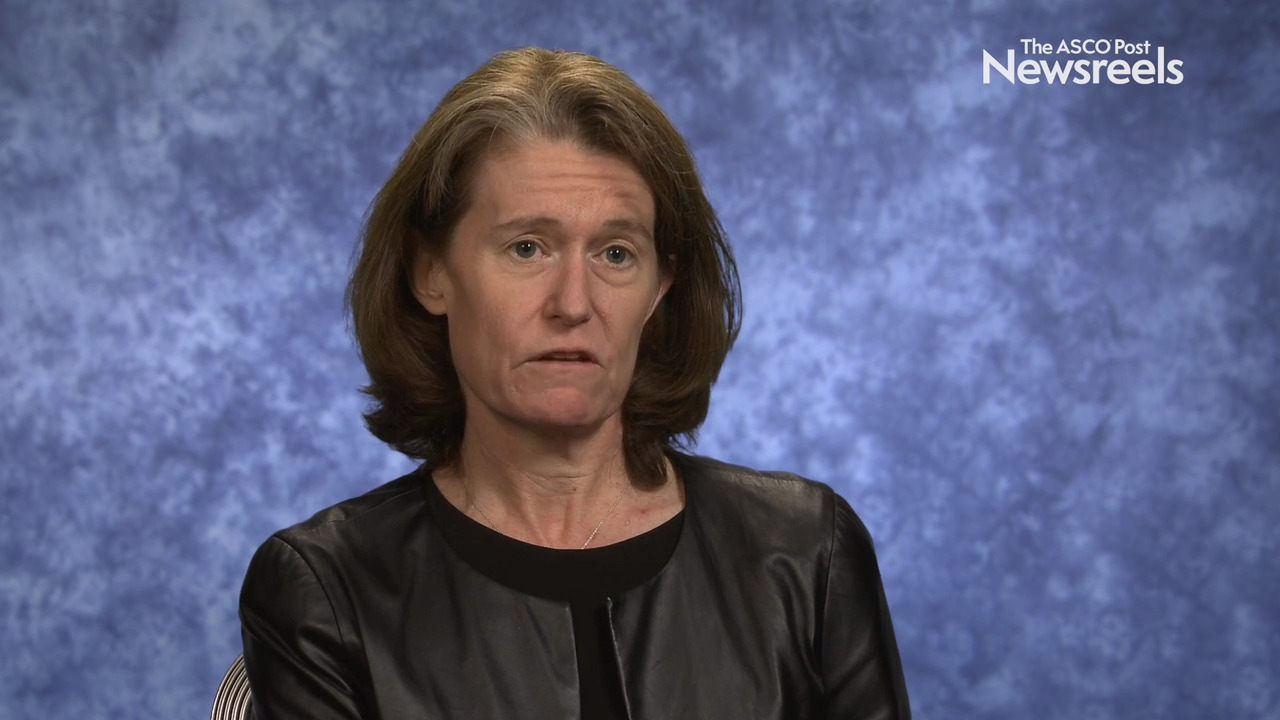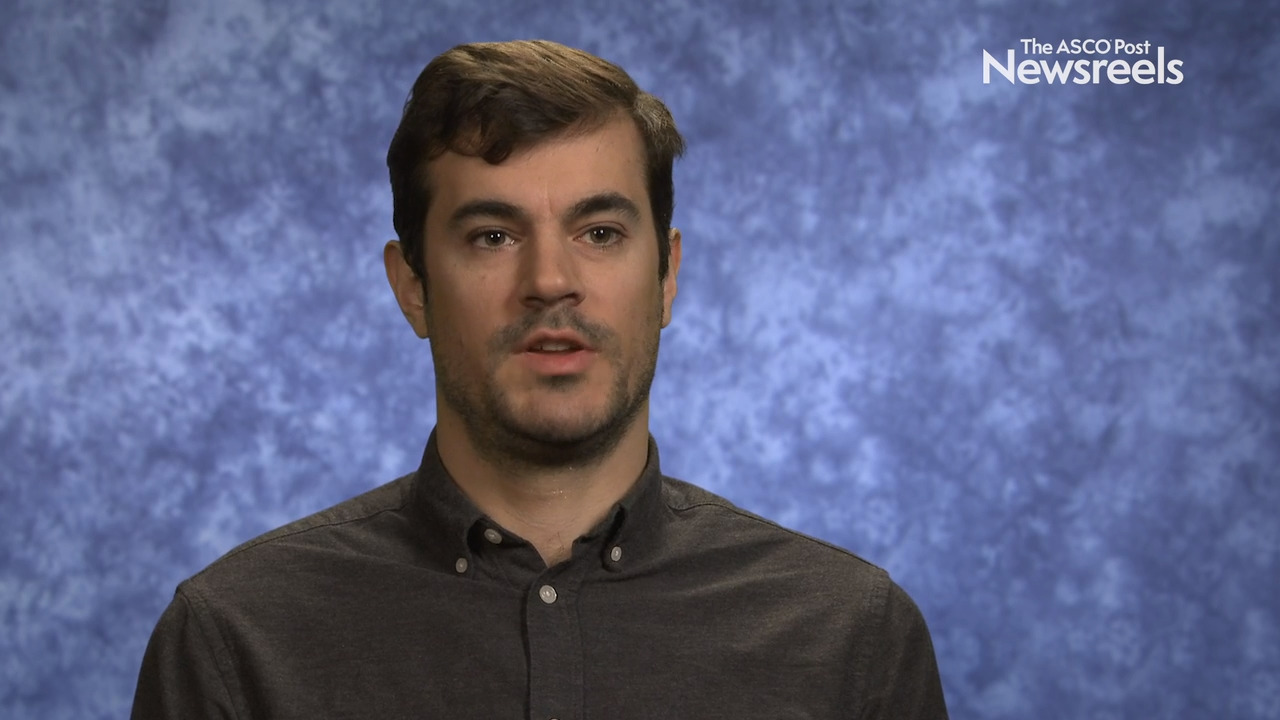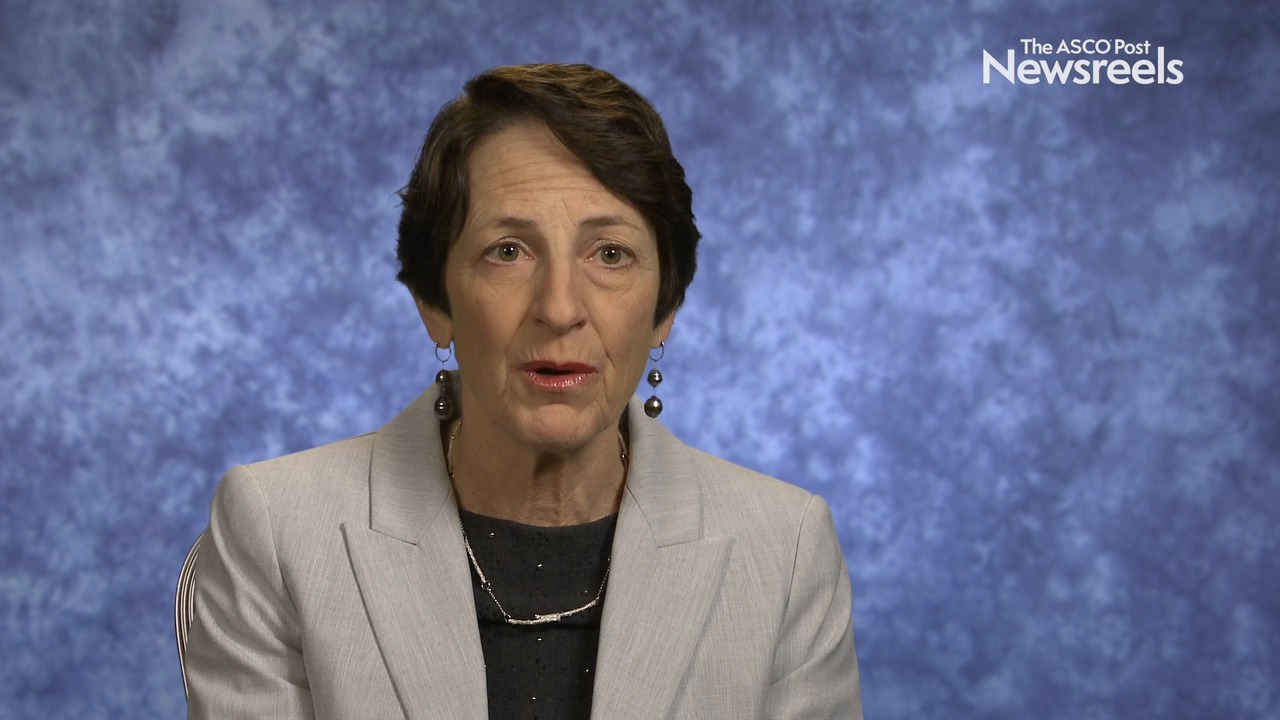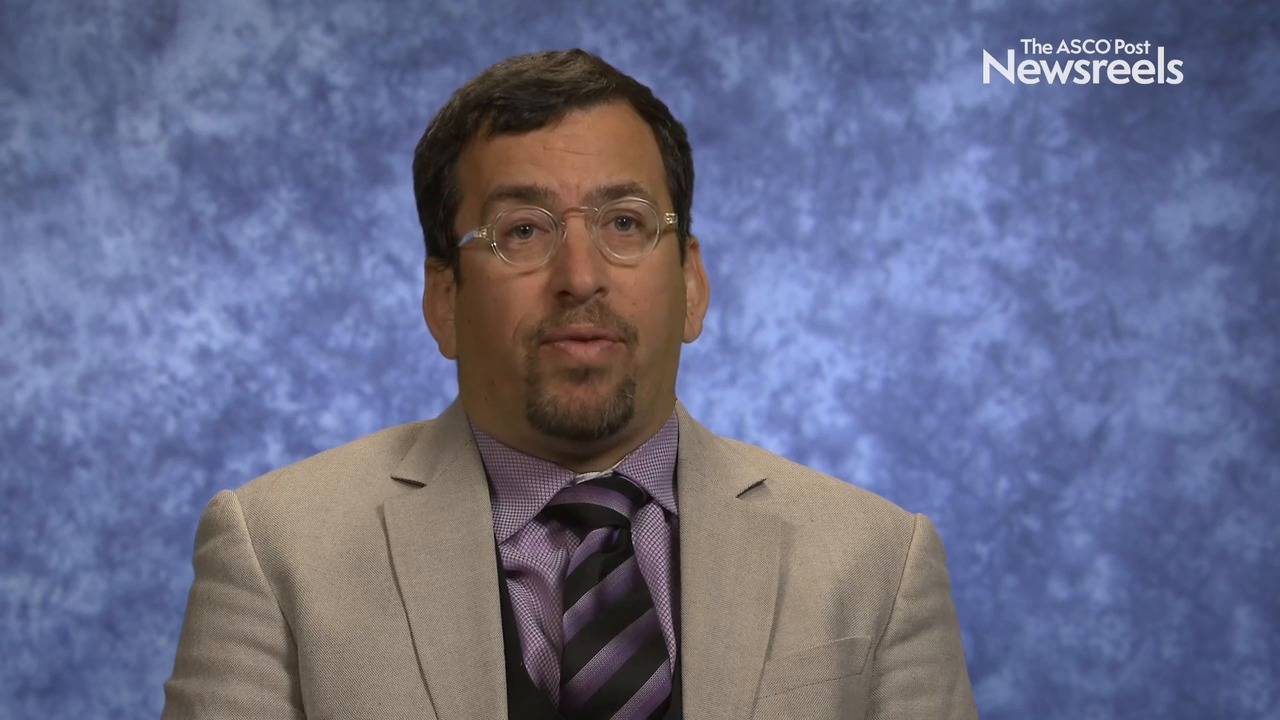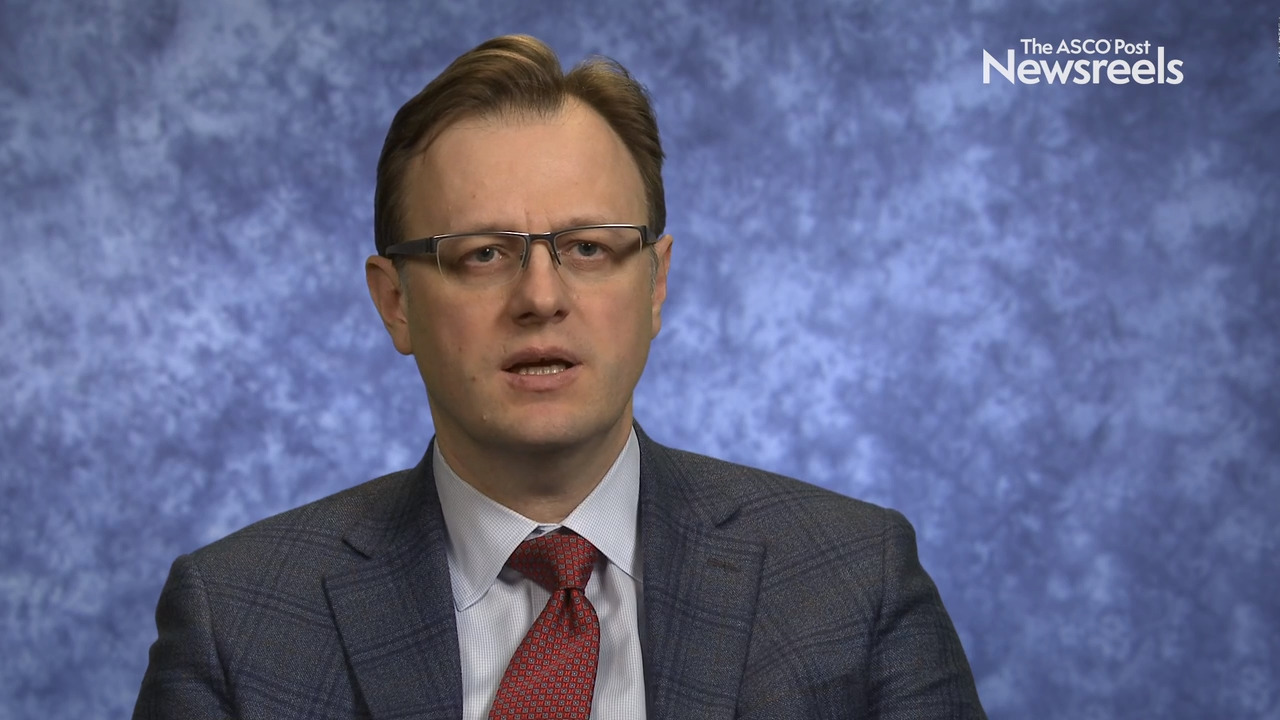G. Travis Clifton, MD, on Breast Cancer and Disease Recurrence: Final Analysis From a Study of Nelipepimut-S, GM-CSF, and Trastuzumab
2019 ASCO-SITC Clinical Immuno-Oncology Symposium
G. Travis Clifton, MD, of Brooke Army Medical Center, discusses phase IIb trial findings on nelipepimut-S plus GM-CSF with trastuzumab vs trastuzumab alone to prevent recurrences of high-risk, HER2 low-expressing breast cancer (Abstract 1).
Elizabeth A. Mittendorf, MD, PhD, of Dana-Farber Cancer Institute, discusses the encouraging data on atezolizumab plus nab-paclitaxel in the first-line setting for metastatic triple-negative breast cancer, and the potential benefits of combining immune checkpoint inhibitors with targeted treatment in breast cancer.
Nicolas Guibert, MD, PhD, of Toulouse University Hospital, discusses a simple algorithm built to predict durable outcomes of patients with advanced non–small cell lung cancer that has been treated with immunotherapy. He notes that early changes in circulating tumor DNA burden may also predict sustained responses to PD-1 inhibitors (Abstract 103).
Kim A. Margolin, MD, of City of Hope, summarizes a session she co-chaired on combination immunotherapies, locoregional therapies, systemic therapies, and enhancing natural killer cells.
Edward B. Garon, MD, of the Olive View–UCLA Medical Center, discusses phase IIIb/IV study findings on reducing the frequency of nivolumab dosing, from 480 mg every 4 weeks to 240 mg every 2 weeks, in patients with previously treated advanced non–small cell lung cancer (Abstract 100).
Stefan O. Ciurea, MD, of The University of Texas MD Anderson Cancer Center, discusses the enhanced antitumor effect and lower viral reactivation that result from high doses of natural killer cells infused after haploidentical transplantation, with no excess graft-vs-host disease, a low relapse rate for high-risk acute myeloblastic leukemia, and a low incidence of viral reactivation (Abstract 74).
